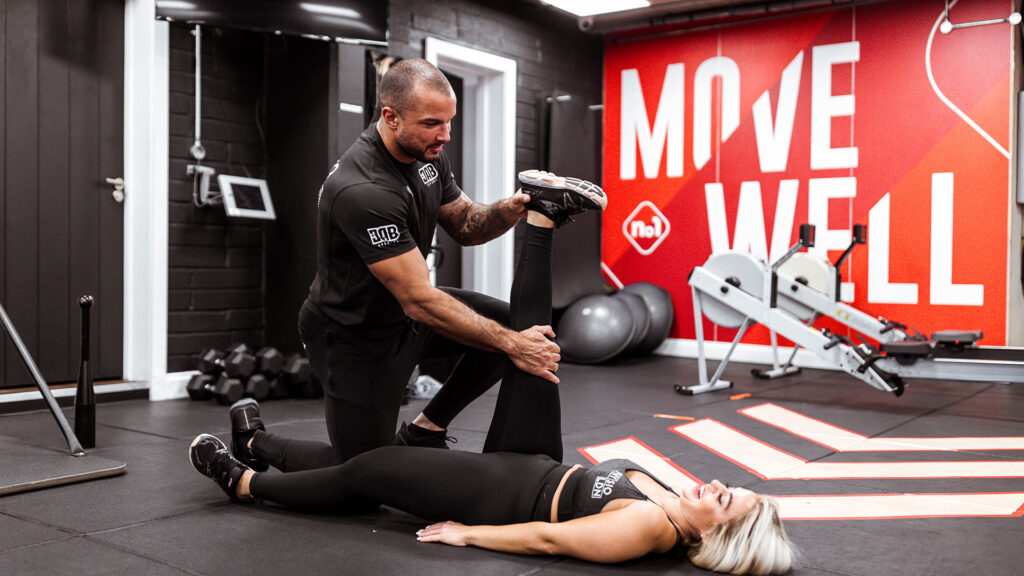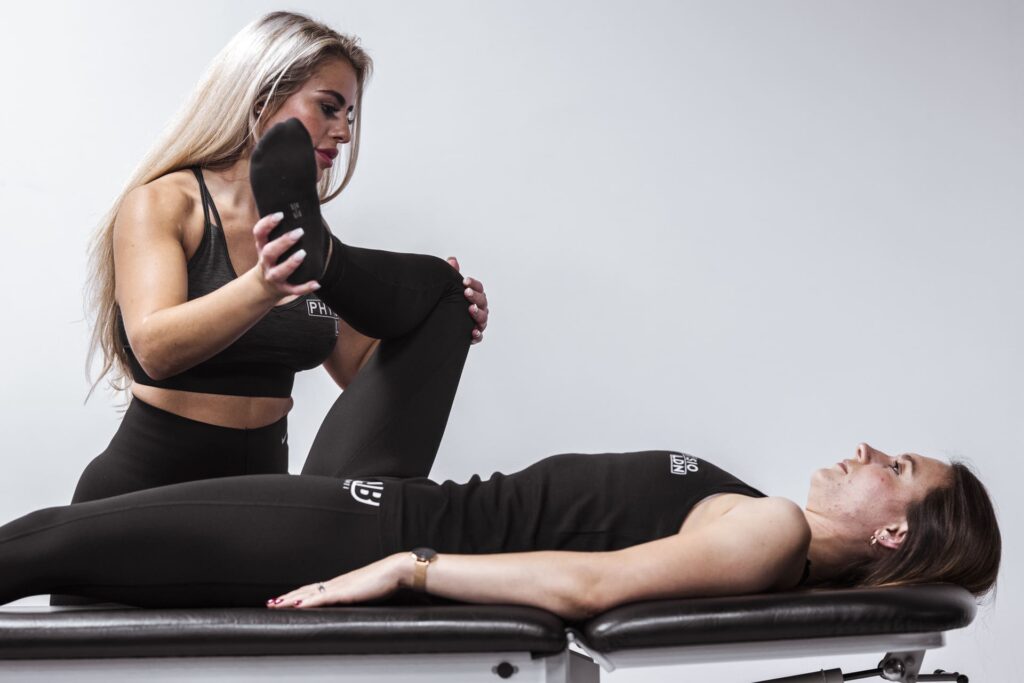Table of Contents
Main Takeaways
- Widespread Condition: Affects millions globally; 1 in 4 adults in the U.S. suffer from arthritis—knee osteoarthritis is a major contributor.
- Duration: Nearly 60% live with pain for 5+ years, 30% for 10+ years, highlighting the need for comprehensive management.
- Coping Strategies:
- Maintain healthy weight, engage in low-impact exercise (swimming, cycling, yoga).
- Incorporate mindfulness, CBT, and creative outlets to manage emotional stress.
- Build support networks—family, friends, and online groups—to boost resilience.
- Pain Management:
- Emerging treatments: PRP, stem cells, and innovative pharmaceuticals.
- Mental Health Link: Chronic pain can cause anxiety and depression; holistic care addressing biopsychosocial factors improves outcomes.
- Comprehensive Care: Multidisciplinary approach (physiotherapists, psychologists, pain specialists) ensures long-term success and quality of life.
Chronic knee pain is a widespread condition affecting millions worldwide, often resulting from arthritis, injury, or prolonged wear and tear. In the United States alone, an estimated 1 in 4 adults suffer from arthritis, with knee osteoarthritis being one of the most common forms contributing to persistent discomfort and mobility challenges. The impact of chronic knee pain extends beyond physical symptoms, influencing mental well-being and quality of life. If you’re local, exploring knee pain treatment in London can provide convenient access to targeted, multidisciplinary care.
Recent research highlights that nearly 60% of patients endure knee pain for over five years, and 30% suffer for a decade or longer, underscoring the pressing need for effective management strategies. For those living with this condition, understanding coping mechanisms, treatment options, and the mental health implications is vital to reclaiming a better quality of life. This article explores these facets in depth, offering insights grounded in the latest studies and expert perspectives.
For those seeking expert physiotherapy support in London, clinics like One Body LDN provide award-winning, evidence-based treatments tailored to individual needs, ensuring comprehensive care for chronic knee pain sufferers.
Coping Strategies
Living with chronic knee pain requires more than just medical intervention; it demands a holistic approach to daily life. Adapting coping strategies can significantly improve functionality and reduce the burden of pain. One key approach involves lifestyle modifications, such as maintaining a healthy weight to reduce stress on the knees and engaging in low-impact exercises like swimming or cycling to strengthen muscles without exacerbating pain. Incorporating flexibility and strength training into a routine can also be beneficial, as these exercises help to stabilize the knee joint and improve overall mobility. Simple activities like yoga or tai chi can enhance balance and promote relaxation, further contributing to pain management.

Psychosocial factors also play a crucial role in pain perception. A study published in PAIN Reports found that mood, anxiety, and stress significantly influence knee osteoarthritis pain, suggesting that managing mental health is an integral part of coping. Techniques such as mindfulness, cognitive-behavioral therapy, and stress reduction can help patients better manage their symptoms. Engaging in creative outlets, such as painting or writing, can also serve as an effective distraction and provide a sense of accomplishment, further alleviating feelings of helplessness that often accompany chronic pain.
Support networks, including family, friends, and patient groups, provide emotional comfort and practical advice, fostering resilience. Additionally, consulting with experienced physiotherapists can empower patients with tailored exercises and movement strategies, enhancing mobility and reducing pain flare-ups.
Participating in support groups, whether in-person or online, can also create a sense of community, allowing individuals to share their experiences and coping mechanisms. This exchange of knowledge can lead to discovering new strategies and insights that may not have been considered, ultimately contributing to a more comprehensive approach to managing knee pain.
Pain Management Options
Effective pain management for chronic knee pain encompasses a spectrum of treatments, from conservative therapies to advanced medical interventions. Physiotherapy remains a cornerstone, focusing on strengthening muscles around the knee, improving joint mobility, and correcting movement patterns. Clinics like One Body LDN in London offer specialized physiotherapy combining deep tissue massage with exercise rehabilitation, providing immediate relief and long-term benefits.
These sessions often include personalized exercise regimens tailored to individual needs, ensuring that patients not only alleviate pain but also enhance their overall physical function. Furthermore, physiotherapists may utilize modalities such as electrical stimulation and heat therapy to complement manual techniques, creating a holistic approach to recovery.Working closely with a professional knee pain physiotherapist helps ensure programs are safe, progressive, and aligned with your goals.

Pharmacological treatments, including nonsteroidal anti-inflammatory drugs (NSAIDs) and pain relievers, are commonly prescribed but should be used judiciously due to potential side effects. A study from the University of Nottingham clarifies that chronic knee osteoarthritis pain alone does not cause cognitive impairment; however, factors such as age and medication use may contribute, highlighting the importance of balanced treatment plans.
In addition to traditional medications, alternative therapies such as topical analgesics and dietary supplements like glucosamine and chondroitin are being explored for their potential benefits in pain relief and joint health. Patients are encouraged to discuss these options with their healthcare providers to determine the best course of action tailored to their specific circumstances. For detail information see the blog knee pain treatment: test relief options & expert care.
Emerging medical technologies and market growth indicate promising advancements. The global knee pain management market is projected to grow at a compound annual growth rate of 4.49% between 2024 and 2030, with pharmaceutical giants like Pfizer and Novartis driving innovation. Additionally, non-invasive treatments such as shockwave therapy and ultrasound are gaining traction for their efficacy in pain reduction and tissue healing.
These cutting-edge techniques are not only revolutionizing the way knee pain is treated but also emphasizing the importance of patient-centered care, where individuals are actively involved in their treatment decisions. As research continues to unfold, innovative solutions like regenerative medicine, which utilizes stem cells and platelet-rich plasma (PRP), are also being investigated for their potential to repair damaged tissues and provide long-lasting relief.
For those seeking immediate and effective relief, combining physiotherapy with targeted pain management strategies offers a comprehensive approach to managing chronic knee pain. This multifaceted strategy not only addresses the physical symptoms but also empowers patients through education and self-management techniques, equipping them with the tools they need to navigate their recovery journey successfully.
Incorporating lifestyle modifications, such as weight management and low-impact exercises, further enhances the effectiveness of these treatments, promoting a healthier, more active lifestyle that can significantly improve quality of life.
Mental Health Considerations
Chronic knee pain is not merely a physical ailment; it profoundly affects mental health. The prolonged experience of pain can lead to feelings of frustration, anxiety, and depression. Dr. Brian Carr, an orthopedic surgeon, emphasizes that living with inadequately managed pain for extended periods results in significant physical, social, and mental burdens, underscoring the need for holistic care.

Addressing mental health is essential for improving overall outcomes. Integrating psychological support into treatment plans can help patients develop coping mechanisms and reduce the emotional toll of chronic pain. Techniques such as mindfulness meditation, counseling, and support groups have shown benefits in alleviating anxiety and depression associated with chronic pain conditions. Furthermore, engaging in physical activities, even at a modified level, can release endorphins that naturally elevate mood and provide a sense of accomplishment, which is particularly important for those feeling trapped by their condition.
Healthcare providers are increasingly recognizing the biopsychosocial model of pain, which considers the interplay between biological, psychological, and social factors. This comprehensive approach ensures that treatment addresses all dimensions of a patient’s experience, promoting better adherence to therapies and improved quality of life. By fostering open communication between patients and their healthcare teams, individuals can better articulate their experiences and needs, leading to more tailored and effective treatment strategies.
For individuals struggling with chronic knee pain, seeking care from multidisciplinary teams, including physiotherapists, psychologists, and pain specialists, is crucial for effective management. These teams can provide a well-rounded approach that not only targets the physical aspects of pain but also offers emotional and psychological support.
Additionally, peer support networks can play a vital role in the healing process, allowing individuals to share their experiences and coping strategies, fostering a sense of community and understanding that can be incredibly beneficial during challenging times. With consistent follow-up and access to effective knee pain treatments, many people can reduce flare-ups, improve function, and regain confidence in daily life.
FAQ
What causes chronic knee pain?
Chronic knee pain is often caused by conditions such as osteoarthritis, ligament injuries, meniscus tears, or repetitive strain. Arthritis is a leading cause, affecting about 25% of adults in the U.S., with knee osteoarthritis being particularly common. This degenerative joint disease results from the gradual wear and tear of cartilage, leading to inflammation and pain. Other contributing factors include obesity, which increases stress on the knee joints, and previous injuries, which can predispose individuals to chronic pain. Additionally, certain occupations or sports that involve repetitive knee movements can exacerbate these conditions, making awareness and preventive measures essential.
How long does chronic knee pain typically last?
According to research, nearly 60% of patients live with knee pain for more than five years, and 30% endure it for ten years or longer. The duration varies depending on the underlying cause and treatment effectiveness. Chronic knee pain can become a persistent issue, often leading to a cycle of pain and reduced activity that can further worsen the condition. Factors such as age, overall health, and adherence to treatment plans also play significant roles in the longevity of knee pain. Understanding these dynamics can help patients and healthcare providers develop more effective management strategies.
Can physiotherapy help with chronic knee pain?
Yes, physiotherapy is highly effective in managing chronic knee pain. It involves exercises to strengthen muscles, improve joint mobility, and reduce pain. Clinics like One Body LDN in London provide specialized physiotherapy combining hands-on treatments and tailored exercise plans. In addition to traditional physiotherapy, techniques such as dry needling, ultrasound therapy, and electrical stimulation may be employed to enhance recovery. Furthermore, education on body mechanics and posture can empower patients to make lifestyle changes that support long-term knee health, ensuring a holistic approach to pain management.
Does chronic knee pain affect mental health?
Chronic knee pain can significantly impact mental health, leading to anxiety, depression, and social isolation. Managing mental health alongside physical symptoms is essential for comprehensive care. The persistent nature of pain can lead to frustration and a feeling of helplessness, which may deter individuals from engaging in social activities or pursuing hobbies they once enjoyed. Support groups and counseling can provide valuable resources for those struggling with the emotional toll of chronic pain, fostering a sense of community and shared experience that can be incredibly beneficial in the healing process.
Are there new treatments available for knee pain?
The knee pain management market is rapidly evolving, with new pharmaceutical and non-invasive treatments emerging. Innovations by companies such as Pfizer and Novartis, alongside advanced physiotherapy techniques, offer promising options for patients. Additionally, regenerative medicine approaches, such as platelet-rich plasma (PRP) injections and stem cell therapy, are gaining traction as potential treatments that aim to promote healing and reduce inflammation. As research continues to advance, patients can expect more personalized treatment options that target the specific mechanisms of their knee pain, improving outcomes and quality of life.
Is chronic knee pain linked to cognitive decline?
Research indicates that chronic knee osteoarthritis pain alone does not cause cognitive impairment. Other factors like age, medication, and socio-economic status may influence cognitive function. However, the relationship between chronic pain and cognitive health is complex. Chronic pain can lead to sleep disturbances and decreased physical activity, both of which are known to negatively impact cognitive function. Understanding these interconnected factors is crucial for developing comprehensive treatment plans that address not only the physical aspects of knee pain but also the potential cognitive implications.
How can I find the best physiotherapist in London for knee pain?
Look for clinics with experienced, highly trained physiotherapists who offer personalized treatment plans. One Body LDN is recognized for its award-winning services, extensive training, and patient-centered care, making it a top choice for knee pain management in London. When searching for a physiotherapist, consider checking for credentials, patient reviews, and the range of services offered. It may also be beneficial to schedule an initial consultation to discuss your specific needs and treatment goals, ensuring that the physiotherapist’s approach aligns with your expectations and lifestyle. Additionally, exploring clinics that incorporate multidisciplinary teams can provide a more holistic approach to managing knee pain, integrating insights from various healthcare professionals for optimal results.
Take Control of Your Chronic Knee Pain with One Body LDN
If you’re struggling with chronic knee pain, it’s time to take the first step towards a pain-free life. One Body LDN, voted as the best London physio clinic by thousands, is your destination for expert assessments and personalized rehab plans. Our award-winning team of physiotherapists, including former athletes and NHS specialists, specialize in musculoskeletal physiotherapy, sports injuries, and post-operative care. We’re dedicated to fixing the root cause of your problem, not just the symptoms. Book your free initial assessment today and experience instant pain relief with a treatment plan tailored just for you. At One Body LDN, we promise results-based care that you can trust, without the worry of being oversold treatments. Let us help you feel amazing again.


